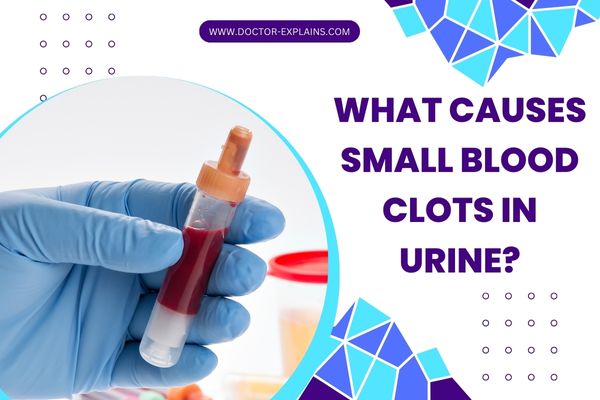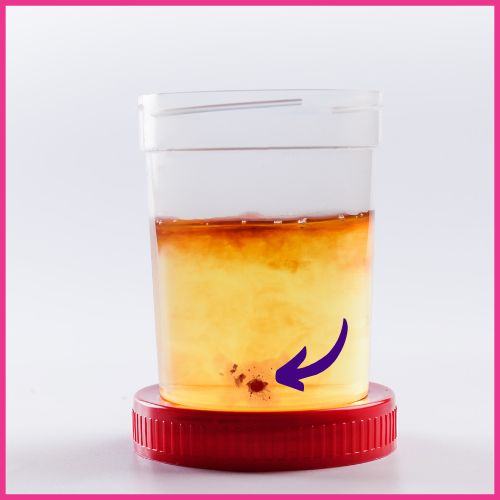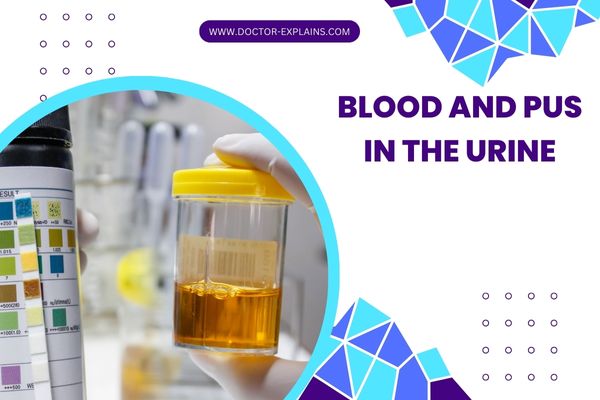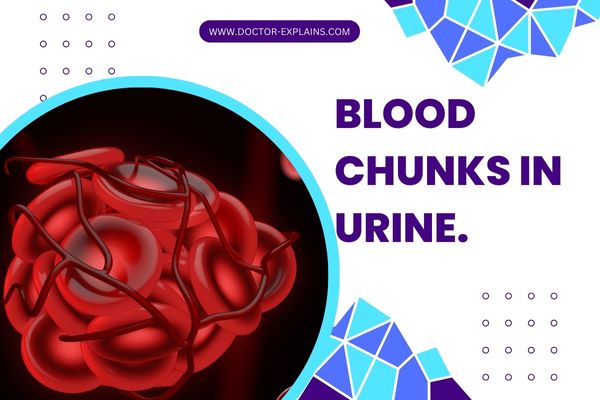Ureteral Stent Bleeding & Urine Clots: 8 Things you Should Know
Our content is not intended nor recommended as a substitute for medical advice by your doctor. Use for informational purposes only.
Key Facts:
- Urethral stents may cause mild to moderate hematuria (blood in urine) after insertion.
- Blood clots in urine with a ureteral stent are not common and indicate heavy focal bleeding.
- The main causes of blood clots are trauma during the stent insertion, irritation of the bladder wall, and related UTIs.
- Blood clots with ureteric stents can also occur due to other causes, such as kidney stones, tumors, or bladder masses.
- Small, short-term blood clots in urine for a day or two after stent insertion often resolve without complications.
- You should seek urgent medical assistance if you have persistent or heavy blood clots in your urine.
1. Do Urethral stents cause blood in urine?
Urethral stents may cause blood in the urine for the first few days after insertion. The cause of hematuria is either due to manipulations during insertions or secondary causes such as stones or infection.
The blood in urine is often mild to moderate and often improves within a few days.
Ureteric stents are meant to stay for months inside your urinary tract. In the long term, you may also experience mild amounts of blood in the urine that comes and goes. However, the bleeding in such cases is often insignificant and doesn’t lead to stent removal.
Also, blood in urine may be very slight to the degree that it is not detectable by the naked eye. Instead, A urine analysis may show (microscopic hematuria) which is common in people with ureteric stents.
2. Is it normal to see blood clots in urine after stent placement?
Blood clots in urine after ureteric stent placement is rare. It is normal to experience a mild amount of blood in urine after stent placement; However, it is not normal to see blood clots as it is a sign of significant bleeding.
However, a few small clots or strings in urine immediately after insertion provided that:
- The clots are few and small.
- No significant blood staining of the urine.
- They last only for a few hours or a day.
- No signs of urine retention (inability or difficulty passing urine).
Always consult your doctor if you experience blood clots after ureteric stent insertion. Blood clots may cause some complications as a stent or urethral obstruction.
3. Cause of Blood clots in urine after stent placement.
Possible causes of blood clots in urine after stent placement may include (reference):
- Trauma to the urethra, bladder, or ureter during the insertion process.
- Irritation of the stent to the bladder wall.
- Stent migration.
- Infection of the stent.
- Other associated causes (stent is not the primary cause) such as Presence of stones, UTI, etc.
- Taking blood thinning medications such as Aspirin or Clopidogrel before or after stent insertion.
4. How much blood in urine is normal after stent placement?
Mild amounts of blood in the urine for hours or a few days after ureteric stent insertion is often normal. However, it is not normal to experience too much blood in urine in the form of:
- Blood clots.
- Frank hematuria (urine looks like pure blood).
- Prolonged blood in the urine for several days with no signs of improvement.
However, an isolated few clots (without significant reddish discoloration of urine) can be normal in the first couple of days after insertion.
5. Complications of blood clots in urine?
Blood clots in urine indicate significant focal bleeding inside the urinary tract.
Small clots shortly after the insertion can occur and often improve rapidly. Complications are rare.
The most common complication of blood clots in urine is the obstruction of urine outflow. It often manifests with blocked urine passage and a sense of severe urge to pee, but no urine comes out.
Bladder and/or flank pain are often present in cases of clot-related urinary retention.
Significant blood loss with bleeding symptoms is extremely rare. It occurs with frank hematuria (peeing dense blood instead of urine), which is rare with ureteric stents.
6. Can blood clots block a ureteric stent?
Blood clots are NOT a common cause of blockage of a ureteric stent. Actually, use ureteric stents to relieve ureter blockage caused by blood clots.
Blood clots are not likely to obstruct the ureteric stent because it has multiple small openings at both ends. Also, the urine flow through the stent prevents attachment of the clots to its inner wall.
Blood clots can cause urine obstruction by blocking the urethra rather than the ureteric stent.
The most common cause of ureteric stent blockage is stent encrustation. Encrustation describes the deposition of crystals onto the surface and the inner lumen of the ureteric stent.
It most commonly occurs due to prolonged stent insertion and doesn’t occur immediately after its insertion.
The blocked ureteric stent symptoms include severe flank pain, difficulty urination, and bloody urine. Bilateral stent blockage may also cause kidney failure.
7. When should you see a doctor?
Any clots in urine after ureteric stent insertion have to be evaluated by your doctor.
See a doctor urgently if there are:
- Blocked urine (unable to urinate despite the persistent urge to bee.
- Frank hematuria (peeing dark blood).
- Heavy or prolonged blood clots in urine.
- Severe flank or bladder pain.
- Fever.
- Vomiting or extreme nausea.
- Shortness of breath.
- Burning urination (dysuria).
You can learn more from our article about the causes and emergencies of blood clots in urine.
- Evidence-based
- Written by a doctor.
MD, Internal Medicine and Nephrology specialist.

Dr. Esraa A. MagidAuthor
MORE INSIGHTS





